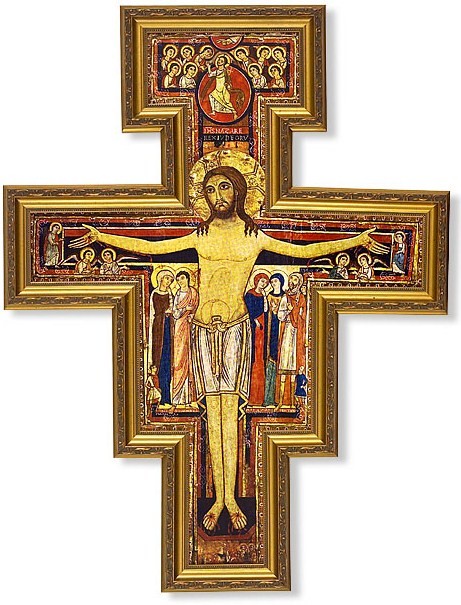Stephen K. Ray on 'Faith Alone'
 In his book, Crossing the Tiber, best selling Catholic author Stephen K. Ray addresses all the false dichotomies, that should have no place in our thinking, regarding being saved (e.g. Are we saved by faith or by baptism? Are we saved by believing or by the Spirit?). I’ve provided the text below to share some of Ray’s thoughts on the concept ‘faith alone.’
In his book, Crossing the Tiber, best selling Catholic author Stephen K. Ray addresses all the false dichotomies, that should have no place in our thinking, regarding being saved (e.g. Are we saved by faith or by baptism? Are we saved by believing or by the Spirit?). I’ve provided the text below to share some of Ray’s thoughts on the concept ‘faith alone.’
“Evangelicalism finds its roots in the sixteenth-century Protestant Reformation. Martin Luther (1483 – 1546) had developed two ‘sola’ doctrines that advanced new ideas. One of Luther’s new ideas was sola fide, which meant that salvation was attained by ‘faith alone’. In other words, Christ completed the work of atonement, and the Judge of the universe makes a legal declaration that those who simply believe and ‘accept Christ as their personal Lord and Savior’ will be eternally justified. All sins, past, present, and future, are automatically removed, and one has eternal security, no matter how he lives his life subsequent to the act of ‘believing.’
Martin Luther, in translating the Book of Romans into the German language, inserted the word “alone’ to explain the word ‘faith’ (e.g. Rom 3:28; 5:1) where the Greek original did not call for it. The pivotal text was Romans 3:28. The inclusion of the word ‘alone’ radically altered the meaning of the text and Paul’s thought. Calvin said the whole of the Reformation would stand or fall on that verse and the newly devised interpretation. Interestingly, the only time the phrase “faith alone” is used in the New Testament is in James 2:24: “You see that a man is justified by works and not by faith alone.”
So how does one receive salvation, justification, new birth, and eternal life? Stephen Ray has listed the following, . .
By believing in Christ (Jn 3:16; Acts 16:31)?
By repentance (Acts 2:38; 2 Pet 3:9)?
By baptism (Jn 3:5; 1 Pet 3:21; Titus 3:5)?
By the work of the Spirit (Jn 3:5; 2 Cor 3:6)?
By declaring with our mouths (Lk 12:8; Rom 10:9)?
By coming to a knowledge of the truth ( I tim 2:4; Heb 10:26)?
By works (Rom 2:6,7; James 2:24)?
By grace (Acts 15:11; Eph 2:8)?
By his blood (Rom 5:9; Heb 9:22)?
By his righteousness (Rom 4;17; 2 pet I:I)?
By his Cross (Eph 2:16; Col 2:14)?
Can we cut any one of these out of the list and proclaimit alone as the means of salvation? Can we be saved without faith? Without God’s grace? Without repentance? Without baptism? Without the Spirit? These are all involved and necessary; not one of them can be dismissed as a means of obtaining eternal life. Neither can one be emphasized to the exclusion of another. They are all involved in salvation and entry into the Church. The Catholic Church does not divide these various elements of salvation up, overemphasizing some while ignoring others; rather, she holds them all in their fullness.”












